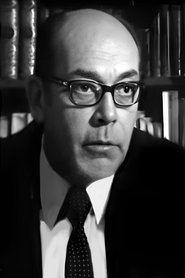Profile

Paul Teitgen
Paul Teitgen, born on February 6, 1919 in Colombe-lès-Vesoul and died on October 13, 1991 in Saint-Cloud, a member of the Resistance since 1940 and deported first to the Struthof camp in Alsace then to Dachau, during the Second World War, was Secretary General of the Algiers Prefecture, in charge of general policing during the Algerian War, between August 1956 and September 1957. He is known for having opposed the use of torture during the Battle of Algiers. Paul Teitgen, grew up in Nancy in a family of Christian Democrats. His father Henri Teitgen and his brother Pierre-Henri Teitgen, minister of the Fourth Republic, joined the Resistance like him. A member of the Resistance since 1940, Paul Teitgen organized the National Liberation Committee in Lorraine from January 1943, in which he was responsible for appointing prefects and the Commissioner of the Republic. He was arrested in Lunéville on July 6, 1944, then transferred to Nancy prison, where he was tortured by the Gestapo. He was then deported to the Struthof camp on August 19, 1944, then transferred to the Dachau camp in September of the same year. At Dachau, he became close to Gaston Gosselin, Joseph Rovan, and Father Sommet, loyal to Edmond Michelet. After his release from the Dachau camp on April 29, 1945, he was repatriated on a plane of journalists on May 31. Concerned about the duty of remembrance, he became a member of the Commission for the History of Internment and Deportation. He successfully passed the first competitive examination of the National School of Administration and became a student in the "France Combattante" promotion. When he left school, he chose to serve in the prefectural corps. On August 20, 1956, Paul Teitgen was appointed to the position of secretary general of the Algiers prefecture in charge of the police. In this position, he became a privileged witness to the torture practices committed by the French army in Algeria, particularly during the Battle of Algiers, and against which he opposed. On March 24, 1957, Paul Teitgen sent his letter of resignation to Robert Lacoste. In this letter, he explicitly denounced the acts of torture practiced by French soldiers on Algerian prisoners or on metropolitan French citizens in favor of Algerian independence. He described torture as a "system" producing "war crimes" identical, according to him, to those of the Gestapo. He also opposed extrajudicial executions, which he himself estimated at around 3,000 for the period between January and September 1957. Sent to the Minister-Resident in Algeria Robert Lacoste, his resignation was accepted on September 12, 1957. During the coup d'état of May 13, 1958, he escaped the paratroopers who tried to arrest him. He was finally expelled from Algeria with his family by General Raoul Salan. Back in France, Paul Teitgen was ostracized by the prefecture. In December 1960, he agreed to testify for the defense of the "suitcase carriers" at the Jeanson network trial, during which he made public his letter to Lacoste. He found himself without a real assignment at the Ministry of the Interior for 2 years, without a position or salary. He then left the Ministry of the Interior by being posted to Brazil for a short period of six months. He then returned to France and joined the Council of State as a master of requests. Born : 6th-Feb-1919









 Kodiapps app v7.0 - Available for
Kodiapps app v7.0 - Available for 
